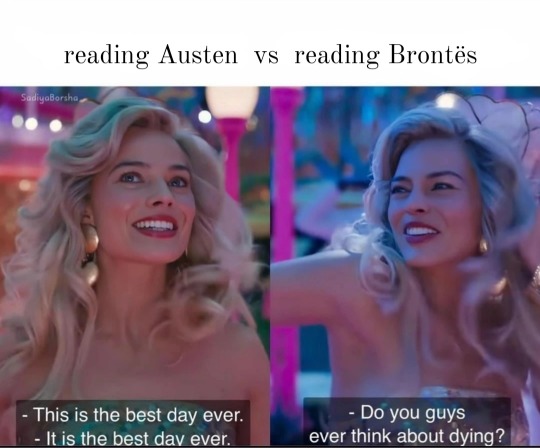#anne Brontë
Text

fatima aamer bilal, from moony moonless sky’s ‘i am your mould, but the shape of you is true absence, leaving me purposeless.’
[text id: and is this not treason? / my soul belongs far more to you than it does to me.]
#fatima aamer bilal#i am your mould but the shape of you is true absence leaving me purposeless#poetry#literature#yearning#longing#unrequited pining#book quotations#poem#prose#poeticstories#art#dark academia#love#typography#book qoute#poetry collection#bts#franz kafka#sylvia plath#lana del rey#pheobe bridgers#hozier#anne brontë#words words words#fiction#fantasy#web weaving#jane austen#mahmoud darwish
718 notes
·
View notes
Text

The bloodstained handkerchief belonging to Anne Brontë, used in the weeks leading up to her death from tuberculosis in May 1849
2K notes
·
View notes
Photo

Power Of Love, by Anne Brontë
2K notes
·
View notes
Text
Lucian's Library 2
Feel free to suggest never written books you wish you could read.
#Anne Brontë#A Song of Ice and Fire#Terry Pratchett#Discworld#GRR Martin#JRR Tolkien#Silmarillion#Jane Austen#Jorge Luis Borges#James Baldwin#Diana Wynne Jones
520 notes
·
View notes
Text
A few years ago, I had the idea of making one of those movies about a girl who falls in love with some asshole “bad boy” with the idea that she can “fix him” with her good influence, but it’s portrayed in a realistic way, and instead of improving, he becomes more and more abusive, until she has to escape.
A couple of days ago, I started reading The Tenant of Wildfell Hall, and finished it yesterday… and I realized that Anne Brontë already beat me to it 177 years ago.
#and i have no complaints whatsoever!#raya reflects#the tenant of wildfell hall#anne brontë#anne bronte#it was really depressing in quite a few parts but i loved it#i have devoured jane eyre and wuthering heights in addition to this#and i can’t wait to discover the rest of the brontë sisters’ bibliography!!#does it show that have been in therapy for over 8 years??
142 notes
·
View notes
Text

Anne Brontë, The Tenant of Wildfell Hall
847 notes
·
View notes
Quote
He who dares not grasp the thorn should never crave the rose.
Anne Brontë, The Narrow Way
#Anne Brontë#motivation#quotes#poetry#literature#relationship quotes#writing#original#words#love#relationship#thoughts#lit#prose#spilled ink#inspiring quotes#life quotes#quoteoftheday#love quotes#poem#aesthetic
131 notes
·
View notes
Text

#nymphpens#dark academia#poets on tumblr#dead poets society#relatable#tumblr text post#poems#classic literature#jane austen#charlotte brontë#emily brontë#anne brontë#the brontës#the brontë sisters#barbie 2023#barbie x classic literature#barbie memes#classic literature memes#pride and prejudice#jane eyre#wuthering heights#the tenant of wildfell hall
929 notes
·
View notes
Quote
He who dares not grasp the thorn should never crave the rose.
Anne Brontë, The Narrow Way
#Anne Brontë#motivation#quotes#poetry#literature#relationship quotes#writing#original#words#love#relationship#thoughts#lit#prose#spilled ink#inspiring quotes#life quotes#quoteoftheday#love quotes#poem#aesthetic
135 notes
·
View notes
Text

I'll walk where my own nature would be leading: it vexes me to choose another guide.
- Anne Brontë, The Tenant of Wildfell Hall
#bookblr#booklr#girlblogging#literature#quoteblr#literary quotes#quote blog#classic literature#book quote#painting#not mine#not my art#book quotes#quotes#quoteoftheday#life quote#beautiful quote#spilled feelings#spilled words#spilled ink#spilled thoughts#spilled writing#the tenant of wildfell hall#anne brontë#anne bronte#bronte sisters#brontë sisters#brontë#bookish#books
72 notes
·
View notes
Text
The Tenant of Wildfell Hall opens with Gilbert Markham telling the story of his meeting Helen who has just moved into his neighborhood after leaving her husband. A fugitive from the law, she lives under an assumed name and tries to avoid the society of her immediate neighbors—Markham and his cohorts. Seen through the lens of Gilbert’s desire, Helen’s character emerges as the archetypal misanthropic stranger, inhabiting a wild and romantic Gothic mansion, her past replete with dark secrets. Brontë has done something astonishingly new: she has created a plausible female Byronic hero, coveted for her very “unfeminine” qualities: inquietude, difficulty, and distance. She is the “mysterious lady” who is so reserved that, “they tried all they could to find out who she was, and where she came from, and all about her, but [no one] ... could manage to elicit a single satisfactory answer ... or throw the faintest ray of light upon her history, circumstances, or connections. Moreover, she was barely civil to them .…” Anne revises Charlotte's Jane Eyre and Emily's Wuthering Heights: it is not Rochester who rules this Thornfield Hall nor is it Heathcliff who lurks about Wuthering Heights seeing ghosts. This time, the woman takes the role of the stormy and seductive artist who charms and mesmerizes the man. Wildfell Hall is a dilapidated, storied mansion, like so many other homes of Gothic literature; it is “cold and gloomy... with its thick stone mullion and little latticed panes, its time-eaten air-holes, and its too lonely, too unsheltered situation” surrounded by trees “half blighted with storms, and looking as stern and gloomy as the hall itself” which “harmonized well with the ghostly legend and dark traditions our old nurse had told us respecting the haunted hall and its departed occupants.” Helen haunts these bleak rooms, and Gilbert longs to redeem her from her dark past and bring her back into the fold, just as Jane yearns to be Rochester's salvation, his earthly paradise.
Deborah Lutz, introduction to The Tenant of Wildfell Hall by Anne Brontë
157 notes
·
View notes
Text
I wonder if part of the reason a lot of people end up hating Gilbert Markham in The Tenant of Wildfell Hall is that he's just so honest in his recounting of the past. He admits to being petty, occasionally cruel, and stupid. He doesn't have a very good reason to hit Lawrence; he was overcome with emotion. He doesn't always respect Helen's boundaries, he is occasionally mean to Eliza, he isn't always the best son, and sometimes he just openly admits that he doesn't know why he did something stupid and/or mean.
Comparing him to another narrator, like say Nick Carraway from The Great Gatsby, you can see a stark difference. Nick is detached from the narrative and he shows us so very little of himself. Everyone else's faults are on full display, but he remains faultless to the point of almost having no personality.
Another occasionally hated narrator, Nelly Dean of Wuthering Heights, is perhaps not quite so honest, but she also shows us her faults and people get mad about them even though they are so human. Of course she didn't like Heathcliff at first, she was a teenager and he was a stranger. Of course she thought Catherine was faking illness at first, but she regrets it later. Her faults are so relatable and human.
Maybe what we really don't like is a mirror of our own faults. We want to be Nick Carraway, we want to sit above the rabble and hand down our judgments. God forbid we are honest with ourselves.
#thoughts#the tenant of wildfell hall#anne brontë#wuthering heights#emily brontë#the great gatsby#nick carraway#unreliable narrators#extremely honest narrators
78 notes
·
View notes
Quote
He who dares not grasp the thorn should never crave the rose.
Anne Brontë, The Narrow Way
#Anne Brontë#motivation#quotes#poetry#literature#relationship quotes#writing#original#words#love#relationship#thoughts#lit#prose#spilled ink#inspiring quotes#life quotes#quoteoftheday#love quotes#poem#aesthetic
453 notes
·
View notes
Text
In a letter to W. S. Williams (14 August 1848), Charlotte Brontë compares Jane Eyre’s Rochester to the Byronic heroes of her sisters’ novels, Heathcliff from Emily’s Wuthering Heights and Huntingdon from Anne’s The Tenant of Wildfell Hall:
“You say Mr. Huntingdon reminds you of Mr. Rochester. Does he? Yet there is no likeness between the two; the foundation of each character is entirely different. Huntingdon is a specimen of the naturally selfish, sensual, superficial man, whose one merit of a joyous temperament only avails him while he is young and healthy, whose best days are his earliest, who never profits by experience, who is sure to grow worse the older he grows.
Mr. Rochester has a thoughtful nature and a very feeling heart; he is neither selfish nor self-indulgent; he is ill-educated, misguided; errs, when he does err, through rashness and inexperience: he lives for a time as too many other men live, but being radically better than most men, he does not like that degraded life, and is never happy in it. He is taught the severe lessons of experience and has sense to learn wisdom from them. Years improve him; the effervescence of youth foamed away, what is really good in him still remains. His nature is like wine of a good vintage, time cannot sour, but only mellows him. Such at least was the character I meant to portray.
Heathcliffe, again, of Wuthering Heights is quite another creation. He exemplifies the effects which a life of continued injustice and hard usage may produce on a naturally perverse, vindictive, and inexorable disposition. Carefully trained and kindly treated, the black gipsy-cub might possibly have been reared into a human being, but tyranny and ignorance made of him a mere demon. The worst of it is, some of his spirit seems breathed through the whole narrative in which he figures: it haunts every moor and glen, and beckons in every fir-tree of the Heights.”
Source: The Brontës Life and Letters (Clement King Shorter, 2013)
#defending her blorbo#charlotte brontë#the bronte sisters#anne brontë#emily brontë#wuthering heights#jane eyre#the tenant of wildfell hall#mr rochester#heathcliff#arthur huntingdon#letters#literature#english literature#character analysis#byronic hero
370 notes
·
View notes
Text

#mr rochester#heathcliff#gilbert markham#m. paul emmanuel#jane eyre#wuthering heights#the tenant of wildfell hall#villette#charlotte bronte#anne brontë#emily bronte#edward fairfax rochester
902 notes
·
View notes
Text
this is how Poe party goes right



#poe party#edgar allan poe's murder mystery dinner party#charlotte brontë#anne brontë#eddie dantes#shipwrecked comedy
55 notes
·
View notes